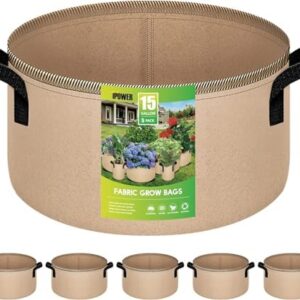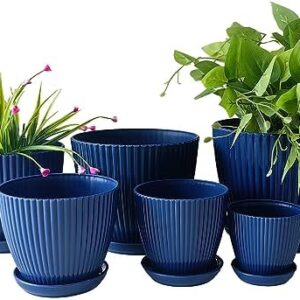Fruit trees are a wonderful addition to any garden. Not only do they provide you with fresh, delicious produce, but they also add beauty and shade to your outdoor space. However, choosing the right fruit trees for your garden can be a daunting task. With so many different varieties to choose from, how do you know which ones will thrive in your particular environment? Here are some tips to help you make the best decision for your garden.
First and foremost, consider your climate. Not all fruit trees are able to withstand the same conditions. Different varieties thrive in different climates. For example, citrus trees like oranges and lemons do well in warm, sunny climates, while apples and pears prefer cooler temperatures. Before you choose a fruit tree for your garden, do some research on which varieties are best suited to your specific climate.
Next, think about the size of your garden. Some fruit trees can grow quite large and may not be suitable for a small space. If you have limited space, consider choosing dwarf or semi-dwarf varieties, which are smaller in size and more manageable. These trees are also easier to prune and harvest, making them a great option for smaller gardens.
Another important factor to consider is pollination. Many fruit trees require cross-pollination in order to produce fruit. This means that you will need to plant at least two different varieties of the same type of fruit tree in order for them to pollinate each other. Some trees are self-pollinating, meaning they are able to produce fruit on their own without the need for another tree. Be sure to research the pollination requirements of the fruit trees you are considering before making a decision.
In addition to climate, size, and pollination, consider the maintenance requirements of the fruit trees you are interested in. Some trees require regular pruning, fertilizing, and pest control in order to thrive. Others are more low-maintenance and require less attention. Think about how much time and effort you are willing to put into caring for your fruit trees before making a selection.
It is also important to consider the fruit itself. Do you have a preference for a certain type of fruit, such as apples, peaches, or cherries? Consider what fruits you and your family enjoy eating and choose fruit trees that will provide you with a bountiful harvest of your favorite fruits. Additionally, think about how you plan to use the fruit. Will you be eating it fresh, cooking with it, or preserving it for later use? Different varieties of fruit trees produce fruit with varying flavors and textures, so choose trees that will best suit your culinary needs.
When selecting fruit trees for your garden, it is also important to consider the soil and sunlight conditions in your garden. Some fruit trees require well-drained soil, while others can tolerate a variety of soil types. Most fruit trees require full sun in order to thrive, so be sure to choose a location in your garden that receives adequate sunlight throughout the day. If you have limited sun exposure in your garden, consider planting fruit trees that are more tolerant of shade.
Finally, consider the aesthetics of the fruit trees you choose. Fruit trees can add beauty and interest to your garden, so choose varieties that will enhance the overall look of your outdoor space. Consider the size, shape, and color of the tree, as well as the appearance of the fruit it produces. Some fruit trees have beautiful blossoms in addition to delicious fruit, making them a great choice for adding visual appeal to your garden.
In conclusion, choosing the right fruit trees for your garden requires careful consideration of a variety of factors. By taking into account your climate, garden size, pollination requirements, maintenance needs, fruit preferences, soil and sunlight conditions, and aesthetic preferences, you can select fruit trees that will thrive in your garden and provide you with a bountiful harvest for years to come. Happy planting!






